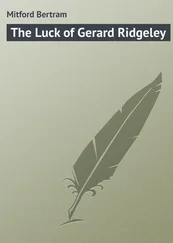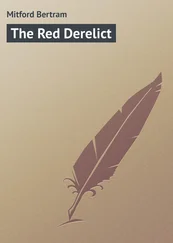Bertram Mitford - The Sirdar's Oath - A Tale of the North-West Frontier
Здесь есть возможность читать онлайн «Bertram Mitford - The Sirdar's Oath - A Tale of the North-West Frontier» — ознакомительный отрывок электронной книги совершенно бесплатно, а после прочтения отрывка купить полную версию. В некоторых случаях можно слушать аудио, скачать через торрент в формате fb2 и присутствует краткое содержание. Издательство: Иностранный паблик, Жанр: foreign_prose, на английском языке. Описание произведения, (предисловие) а так же отзывы посетителей доступны на портале библиотеки ЛибКат.
- Название:The Sirdar's Oath: A Tale of the North-West Frontier
- Автор:
- Издательство:Иностранный паблик
- Жанр:
- Год:неизвестен
- ISBN:нет данных
- Рейтинг книги:4 / 5. Голосов: 1
-
Избранное:Добавить в избранное
- Отзывы:
-
Ваша оценка:
- 80
- 1
- 2
- 3
- 4
- 5
The Sirdar's Oath: A Tale of the North-West Frontier: краткое содержание, описание и аннотация
Предлагаем к чтению аннотацию, описание, краткое содержание или предисловие (зависит от того, что написал сам автор книги «The Sirdar's Oath: A Tale of the North-West Frontier»). Если вы не нашли необходимую информацию о книге — напишите в комментариях, мы постараемся отыскать её.
The Sirdar's Oath: A Tale of the North-West Frontier — читать онлайн ознакомительный отрывок
Ниже представлен текст книги, разбитый по страницам. Система сохранения места последней прочитанной страницы, позволяет с удобством читать онлайн бесплатно книгу «The Sirdar's Oath: A Tale of the North-West Frontier», без необходимости каждый раз заново искать на чём Вы остановились. Поставьте закладку, и сможете в любой момент перейти на страницу, на которой закончили чтение.
Интервал:
Закладка:
“It were better, Sirdar Sahib, that I myself travelled to Mazaran to procure it, for our people are distrustful of strangers.” Murad Afzul laughed evilly. “But we are doubly so, O worshipper of debauched idols,” he said. “So thou wouldst fain fare forth thyself? Ha, ha, then how long would it be before we beheld thee again, or one single one of the ten thousand rupees?”
“Why, as soon as I could collect them, and to do that I would spare no pains, no trouble, Sirdar Sahib, although it would leave me a poor man, and in debt for life,” replied Chand Lall, eagerly thinking, poor fool, that his jailor was going to set him free on so slender a security as his bare word. But the shout of laughter that went up from all who heard quickly undeceived him.
“Who having a caged bird of value turns that bird loose to stretch his wings in the hope that it will return to its cage?” said the chief. “Thou art to us a caged bird of value, thou eater of money – wherefore we keep thee until thou hast no further value. Show him,” he added, turning to his followers.
In obedience to this somewhat mysterious mandate one of them turned and dived into a cleft, producing therefrom an object which he gleefully unrolled, and held up before the gaze of the horrified captive – and well, indeed, might the latter quake, for it was the skin of a man.
It had been most deftly taken off. Face, head, ears – everything in fact. Staring at the horrid thing, Chand Lall felt his very marrow melt within him.
“See,” said Murad Afzul. “He did not die, even then. He lived to taste of fire and boiling ghee.” And the rest of the band laughed like fiends, but the wretched Hindu covered his face and shook.
“Well mayst thou tremble,” went on his pitiless tormentor. “For should Ibrahim return without ten thousand rupees, or not return at all, by the setting of the third sun, thine own skin shall dry beside that one.”
The victim uttered a loud cry.
“The third sun! Why, Sirdar Sahib, that will be impossible. I can never have so much money collected in so short a time. Make it the sixth sun.”
Murad Afzul consulted a moment with his followers. Then he said, —
“Allah is merciful, and so, too, will I be. I will say then by the setting of the fifth sun after this one. Yet try not to play us any false trick, thou dog, for it will be useless, and for what it will mean to thyself, look on yonder and be assured,” and, as though to emphasise the chief’s words, he who held the horrible human skin shook it warningly and suggestively in the face of the thoroughly terrified hostage.
The Political Agent, having dined well in his evening camp, was going over some official papers by the light of the tent lamp.
“Oh, Sunt Singh,” he said, looking up as a chuprassi entered, “what became of that trader who was with us? I didn’t see him when we first camped.”
“ Huzoor , he is camped just below the sowars’ tents, I believe.”
“Yes? You may go,” and the official resumed what he was doing, without further thought for the luckless Chand Lall, who certainly was not where the lying chuprassi had said.
Chapter Seven
A Surprise
Herbert Raynier ran lightly up the steps of his verandah, feeling intensely satisfied with himself and things in general.
Though summer, the air was delightfully balmy, and the glow of the sunset reddening the heads of the mountains surrounding the basin in which lay Mazaran, was soothing and grateful to the eye. The bungalow was roomy and commodious, and stood in the midst of a pleasant garden, where closing flowers distilled fragrant scents upon the evening air – all this sent his mind back in thankful contrast to hot, steaming, languid Baghnagar, its brassy skies and feverish exhalations, where even at this late hour the very crows lining the roof would be open-billed and gasping. And thus contrasting the new with the old order of things he decided for the fiftieth time that the luckiest moment of his life was when he opened the official letter – which met him on landing at Bombay – appointing him Political Agent at Mazaran.
Hardly less in contrast between the climate of his new station and the last, were the people with whom he now had to deal. There was nothing whatever in common between the meek subservient native he had hitherto ruled and the stalwart independence of these wild mountain tribes, whose turbulent and predatory instincts needed nice handling to keep in efficient control. But all this appealed to him vividly, and he threw himself into his new duties with an eager zest which caused those who had known his predecessor to smile. He recognised that here at least was a chance; here he might find scope for such latent ability which the stagnant routine of his old Department had been in danger of stifling altogether. In fact, he was inclined to regret the abnormally tranquil state of things, when Jelson, his predecessor, had congratulated him upon the fact that Mushîm Khan, the chief of the powerful, and often turbulent, Gularzai tribe, had become so amenable since the Government had created him a Nawab that the meanest bunniah might almost walk through the Gularzai country alone and with his pockets bulging with rupees, in perfect safety.
Herbert Raynier flung himself into a comfortable chair on the verandah and lighted a cheroot. He had half an hour to spare before it should be time to dress and go out to dinner, and how should such be better spent than in a restful smoke: yet, while enjoying this, his thoughts were active enough. His prospects, rosy as the afterglow which dwelt upon the surrounding peaks, kept him busy for a time, and over all was a sense of great relief. If he had saved the life of an unknown Oriental at the hands of a particularly brutal mob, assuredly he had been repaid to the full, for, but for that circumstance, matters would never have come to a head with Cynthia. He would still be bound hard and fast by a chain of which he only realised the full weight since he had broken it. For he had broken it – finally, irrevocably, unmistakably, he told himself. Since that last scene in the Vicarage garden he and Cynthia had exchanged no word. The remainder of that day had not been of a pleasant nature, and he had left by an early train on the following morning, to return three days later to India. No letter, either of farewell, or reproach or recrimination – as he had half feared – reached him at the last, and it was with feelings of genuine relief that he watched the shores of the mother country fade into the invisible.
Tarleton, the Civil Surgeon, at whose bungalow Raynier was dining, was somewhat of a trying social unit, in that he was never even by chance known to agree with any remark or proposition, weighty or trivial, put forward by anybody, or if there was no conceivable room for gainsaying such, why then he would append some brisk aggressive comment in rider fashion. As thus, —
“How do, Raynier? How did you come over? Didn’t walk, did you?”
“No. Biked.”
“Ho! Bicycle’s not much use up here, I can tell you.”
Raynier remarked that he found the machine useful for getting about the station with, and that the roads in and immediately around the same were rather good.
“Well, you didn’t expect to find them all rocks and stones, did you?” came the prompt rejoinder.
Tarleton was white-haired and red-faced, which caused him to look older than his actual years. Another of his peculiarities was that he was continually altering his facial appearance. Now he would grow a beard; then suddenly, without a word to anybody, would trim it down to what they call in Transatlantic a “chin-whisker,” or shave it altogether. Or, one day he would appear with a long, carefully-waxed moustache, and the next with that appendage clipped to the consistency of a toothbrush. And so on.
Читать дальшеИнтервал:
Закладка:
Похожие книги на «The Sirdar's Oath: A Tale of the North-West Frontier»
Представляем Вашему вниманию похожие книги на «The Sirdar's Oath: A Tale of the North-West Frontier» списком для выбора. Мы отобрали схожую по названию и смыслу литературу в надежде предоставить читателям больше вариантов отыскать новые, интересные, ещё непрочитанные произведения.
Обсуждение, отзывы о книге «The Sirdar's Oath: A Tale of the North-West Frontier» и просто собственные мнения читателей. Оставьте ваши комментарии, напишите, что Вы думаете о произведении, его смысле или главных героях. Укажите что конкретно понравилось, а что нет, и почему Вы так считаете.












